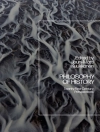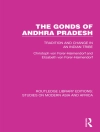As media environments and communication practices evolve over time, so do theoretical concepts. This book analyzes some of the most well-known and fiercely discussed concepts of the digital age from a historical perspective, showing how many of them have pre-digital roots and how they have changed and still are constantly changing in the digital era. Written by leading authors in media and communication studies, the chapters historicize 16 concepts that have become central in the digital media literature, focusing on three main areas. The first part, Technologies and Connections, historicises concepts like network, media convergence, multimedia, interactivity and artificial intelligence. The second one is related to Agency and Politics and explores global governance, datafication, fake news, echo chambers, digital media activism. The last one, Users and Practices, is finally devoted to telepresence, digital loneliness, amateurism, user generated content, fandom and authenticity. The book aims to shed light on how concepts emerge and are co-shaped, circulated, used and reappropriated in different contexts. It argues for the need for a conceptual media and communication history that will reveal new developments without concealing continuities and it demonstrates how the analogue/digital dichotomy is often a misleading one.
O autorze
G. Balbi, Switzerland;
N. Ribeiro, Portugal;
V. Schafer, Luxembourg;
Chr. Schwarzenegger, Germany.












